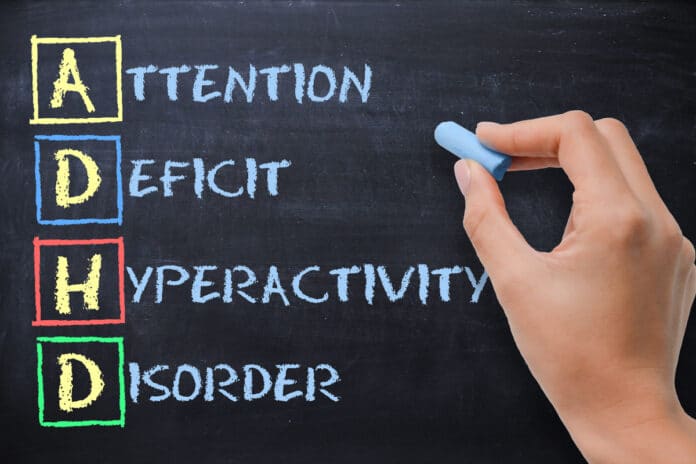In a world that constantly buzzes with distractions, focusing on the essentials can be a challenge akin to catching a fleeting thought. But for those grappling with Attention Deficit Hyperactivity Disorder (ADHD), this challenge reaches a whole new level. ADHD, a captivating neurodevelopmental whirlwind affecting individuals of all ages, disrupts attention, impulse control, and executive functions. Amidst this captivating storm, a beacon of clarity emerges—the ADHD test.
Like a guiding star in the night sky, the ADHD test offers a chance to untangle the enigmatic threads of this complex condition. It empowers individuals to navigate their cognitive landscape, uncovering insights and paving the way for understanding and support.
READ ALSO:
But fear not, for this comprehensive guide sheds light on the intricate realm of ADHD testing. Whether you’re an adult seeking answers, a concerned parent trying to understand your child’s behaviour, or a curious mind delving into the fascinating intricacies of mental health, join us as we navigate through a labyrinth of diagnostic tools and screening tests.
Together, we’ll embark on a journey to unravel the mysteries of ADHD, empowering you with the knowledge and resources needed to diagnose and manage this captivating neurological puzzle.
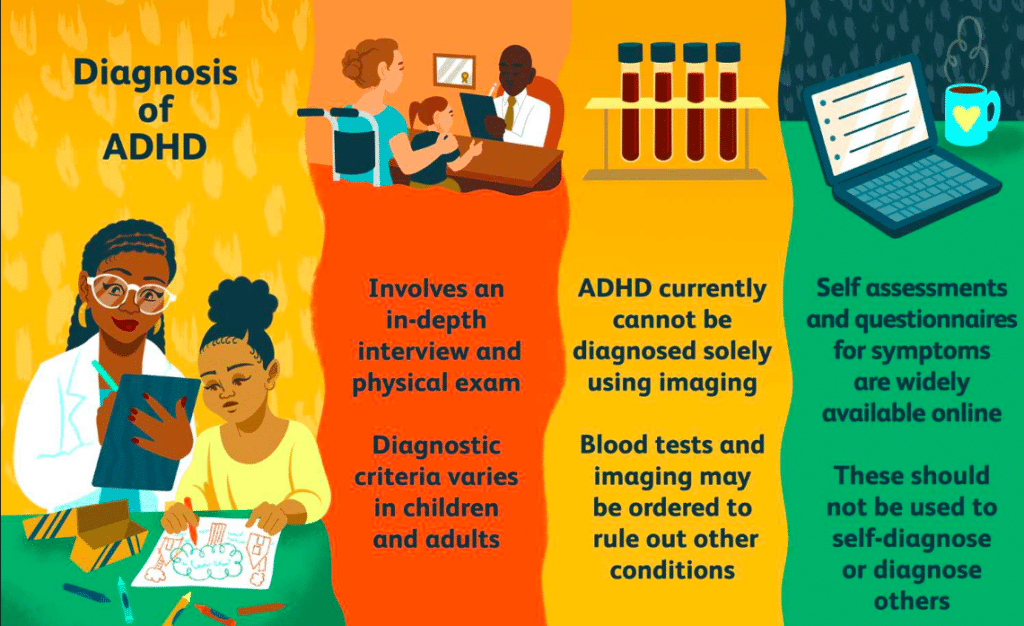
Definition of ADHD (Attention Deficit Hyperactivity Disorder):
Attention Deficit Hyperactivity Disorder (ADHD) is a neurodevelopmental disorder characterised by persistent patterns of inattention, hyperactivity, and impulsivity that significantly impact an individual’s daily functioning and quality of life.
People with ADHD often struggle to sustain attention, have difficulty organising tasks, exhibit impulsive behaviour, and may experience restlessness or excessive physical activity. These symptoms typically manifest during childhood and can continue into adolescence and adulthood.
ADHD is a complex condition with various subtypes, including predominantly inattentive, predominantly hyperactive-impulsive, and combined presentation.
While ADHD can pose challenges, proper diagnosis and appropriate support can help individuals with ADHD lead fulfilling lives by developing effective coping strategies and utilising tailored treatments. It is important to consult with a qualified healthcare professional for a comprehensive evaluation and diagnosis of ADHD.
Related: DNA Test in Nigeria: How Much does it Cost?
Importance of ADHD Testing
The importance of ADHD testing cannot be overstated. It serves as a crucial step in understanding and addressing the challenges faced by individuals with Attention Deficit Hyperactivity Disorder. Here are a few key reasons why ADHD testing holds such significance:
- Accurate Diagnosis: ADHD testing provides a reliable and objective assessment to confirm or rule out the presence of ADHD. It helps differentiate ADHD from other conditions that may exhibit similar symptoms, ensuring an accurate diagnosis.
- Tailored Treatment: A proper ADHD diagnosis allows healthcare professionals to develop personalised treatment plans that address specific symptoms and individual needs. Testing helps determine the most effective interventions, such as medication, therapy, or behavioural interventions.
- Understanding Impacts: ADHD testing helps individuals and their families gain a deeper understanding of the challenges associated with the condition. It provides insights into how ADHD affects attention, impulsivity, and executive functions, allowing for better management strategies and support.
- Educational Accommodations: For children and students, an ADHD diagnosis supported by testing can facilitate the implementation of necessary educational accommodations. These accommodations may include extended time for assignments, preferential seating, or modified learning environments, ensuring equal opportunities for success.
- Self-awareness and Empowerment: ADHD testing fosters self-awareness and empowers individuals to better understand their strengths and weaknesses. It helps reduce self-blame and stigma, promoting acceptance and encouraging proactive steps towards managing symptoms and seeking appropriate support.
- Identifying Co-occurring Conditions: ADHD often coexists with other mental health conditions, such as anxiety or depression. Testing can help identify and address these comorbidities, leading to comprehensive treatment approaches that target all relevant challenges.
- Lifespan Implications: ADHD can persist into adulthood, affecting various aspects of life, including work, relationships, and overall well-being. Testing in adulthood can help individuals gain clarity, seek appropriate support, and make informed decisions to navigate these challenges effectively.
ADHD testing is vital in accurate diagnosis, tailored treatment, educational support, self-awareness, and addressing co-occurring conditions. By embracing the importance of testing, individuals with ADHD can embark on a journey of understanding, self-empowerment, and improved quality of life.
Related: 7 Natural Ways To Prevent Cancer
Overview of different ADHD tests available
There are several ADHD tests available that serve as valuable tools in assessing and diagnosing Attention Deficit Hyperactivity Disorder. Here’s an overview of some commonly used ADHD tests:
- NHS ADHD Test: This test, provided by the National Health Service (NHS) in certain regions, is a comprehensive assessment conducted by healthcare professionals. It involves interviews, questionnaires, and observations to evaluate ADHD symptoms and their impact on daily life.
- Clinical Partners ADHD Test: The Clinical Partners ADHD test is an online screening tool designed to assess ADHD symptoms in adults. It consists of questions related to attention, impulsivity, and hyperactivity, providing an initial indication of possible ADHD.
- IDRLabs ADHD Test: The IDRLabs ADHD test is an online self-assessment tool for adults and teens. It assesses ADHD symptoms based on the DSM-5 criteria, indicating the likelihood of ADHD.
- Vanderbilt ADHD Test: Primarily used for children, the Vanderbilt ADHD test is a comprehensive assessment tool that involves input from parents, teachers, and the child. It assesses ADHD symptoms across different settings, helping to determine a diagnosis.
- QB ADHD Test: The QB test is a computerised assessment that measures attention and impulsivity through various tasks and tests. It provides objective data and can be used as an aid in diagnosing ADHD in both children and adults.
It’s important to note that while these tests can provide valuable insights, they should be used as part of a comprehensive evaluation conducted by qualified healthcare professionals. ADHD tests are not definitive diagnostic tools but serve as supportive measures in the diagnostic process.
A comprehensive evaluation may also involve medical history assessments, clinical interviews, behavioural observations, and additional psychological testing to ensure an accurate diagnosis.
The choice of ADHD test may vary based on factors such as age, availability, and the recommendations of healthcare professionals. Consulting with a qualified healthcare provider is crucial in determining the most appropriate ADHD test for an individual’s specific needs.
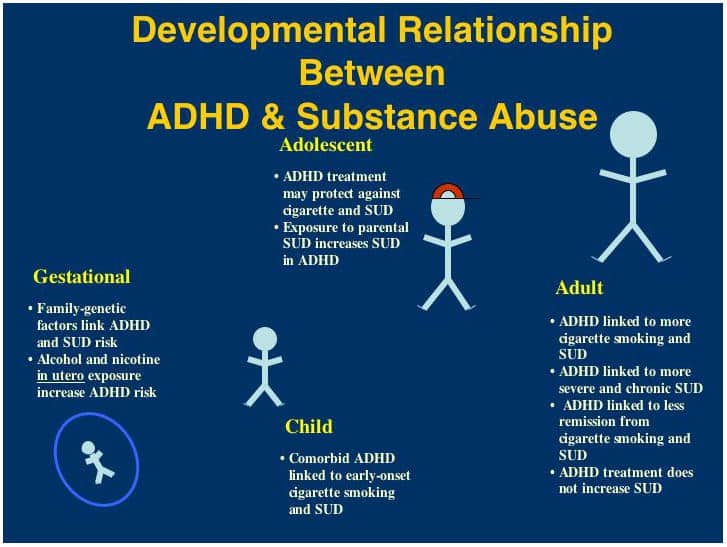
Related: 30+ Healthy Dessert Recipes You Should Try
Understanding ADHD
Symptoms and Characteristics of ADHD:
ADHD is characterised by symptoms related to inattention, hyperactivity, and impulsivity. These symptoms can vary in intensity and presentation and may include:
- Inattention:
- Difficulty sustaining attention on tasks or activities
- Easily distracted by external stimuli
- Forgetfulness and frequently losing items
- Difficulty organising tasks and following instructions
- Difficulty with long-term planning and goal-setting
- Hyperactivity:
- Restlessness and an inability to stay still or sit quietly
- Constant fidgeting or squirming
- Excessive talking and difficulty engaging in activities quietly
- Impatience and a sense of always being “on the go”
- Impulsivity:
- Acting without thinking of the consequences
- Interrupting or intruding on others’ conversations or activities
- Difficulty waiting for one’s turn
- Impulsive decision-making and engaging in risky behaviours
Related: Healthy Eating Habits You Should Adopt for a Better Life
Impact of ADHD on Daily Life:
ADHD can have a significant impact on various aspects of daily life, including:
- Academic or Work Performance: Difficulties with attention, organisation, and impulsivity can hinder productivity, task completion, and meeting deadlines.
- Relationships and Social Interactions: Challenges in maintaining attention, impulsivity, and hyperactivity can affect relationships with family, friends, and colleagues. Difficulties in listening and engaging in conversations may lead to misunderstandings or strained connections.
- Emotional Well-being: Individuals with ADHD may experience frustration, low self-esteem, and emotional dysregulation due to difficulties meeting expectations and managing symptoms.
- Time Management and Organization: ADHD can make it challenging to plan, prioritise, and manage time effectively, leading to disorganisation and increased stress levels.
RELATED STORIES:
Prevalence of ADHD in Adults and Children
ADHD is a common neurodevelopmental disorder. According to the World Health Organization (WHO), the estimated global prevalence of ADHD in children is about 5-7%.
However, prevalence rates may vary across different countries and regions. It is worth noting that ADHD can persist into adulthood, and studies suggest that approximately 50-65% of children with ADHD continue to experience symptoms in adulthood.
Relationship between ADHD and Mental Health
ADHD is often associated with other mental health conditions. Some common co-occurring disorders include:
- Anxiety Disorders: ADHD and anxiety often coexist, with individuals experiencing heightened worry, restlessness, and difficulty concentrating.
- Mood Disorders: Depression and bipolar disorder may occur alongside ADHD, potentially exacerbating emotional challenges and affecting overall well-being.
- Learning Disabilities: There is a higher prevalence of learning disabilities in individuals with ADHD, which can further impact academic performance and self-esteem.
- Substance Use Disorders: Individuals with ADHD may be at higher risk of developing substance use disorders, potentially as a means to cope with symptoms or impulsivity.
Understanding the relationship between ADHD and mental health is crucial for comprehensive evaluation, treatment planning, and addressing the overall well-being of individuals with ADHD. Collaboration between healthcare professionals specialising in ADHD and mental health is often necessary to provide comprehensive care.
ADHD Tests for Adults
Importance of Diagnosing ADHD in Adults
Diagnosing ADHD in adults holds significant importance for several reasons:
- Validating Experiences: Many adults with undiagnosed ADHD have struggled throughout their lives, experiencing difficulties with attention, impulsivity, and organisation. A formal diagnosis helps validate their experiences and explains their challenges.
- Access to Support and Treatment: A formal diagnosis opens doors to appropriate support and treatment options. It allows individuals to access resources such as therapy, medication, and behavioural interventions tailored to address their specific ADHD symptoms.
- Enhancing Self-Understanding: A diagnosis of ADHD empowers individuals to better understand themselves, their strengths, and their areas of difficulty. It provides clarity and self-awareness, helping them develop effective strategies to manage symptoms and navigate daily life.
- Improving Quality of Life: With a diagnosis, individuals can make informed decisions about their education, career, and relationships. They can seek accommodations and support, fostering success and well-being in various aspects of life.
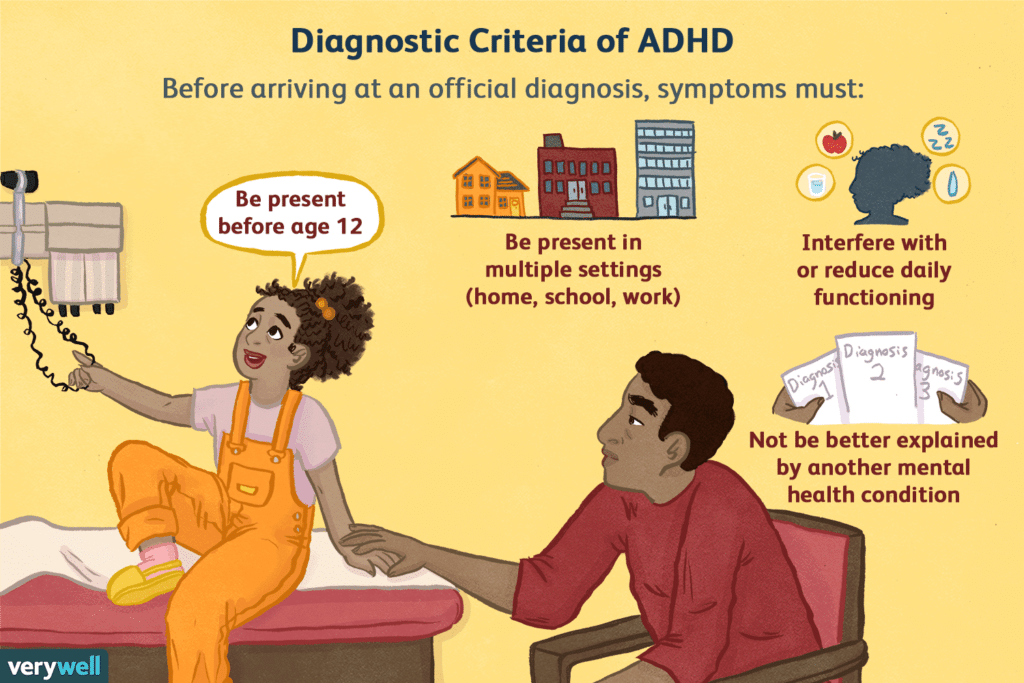
Screening Tests for Adult ADHD:
- NHS ADHD Test: The National Health Service (NHS) offers a comprehensive ADHD assessment for adults. Conducted by healthcare professionals, this assessment involves interviews, questionnaires, and observations to evaluate ADHD symptoms and their impact on daily life.
- Clinical Partners ADHD Test: The Clinical Partners ADHD test is an online screening tool specifically designed for adults. It consists of questions related to attention, impulsivity, and hyperactivity, providing an initial indication of possible ADHD.
- IDRLabs ADHD Test: The IDRLabs ADHD test is an online assessment tool for adults. It assesses ADHD symptoms based on the DSM-5 criteria, offering insight into the likelihood of having ADHD.
- Vanderbilt ADHD Test: While predominantly used for children, the Vanderbilt ADHD test can also be adapted for adults. It involves input from the individual and may include reports from family members or close friends to assess ADHD symptoms across various domains.
- QB ADHD Test: The QB test is a computerised assessment that measures attention and impulsivity through various tasks and tests. It can aid in diagnosing ADHD in adults, providing objective data to support the evaluation.
- Self-ADHD Test: Several self-assessment tools are available online for adults to screen for possible ADHD symptoms. These tests typically consist of questions related to attention, impulsivity, and hyperactivity. While self-tests can provide initial insights, a formal evaluation by a healthcare professional is necessary for an accurate diagnosis.
It is essential to remember that these screening tests should be used as a starting point and not as definitive diagnostic tools. They can assist in identifying potential symptoms and guide in seeking further evaluation from qualified healthcare professionals.
A comprehensive assessment, including clinical interviews and consideration of medical history, is crucial for an accurate ADHD diagnosis in adults.
Related: Who Is a “Moomoo”? or Is It “Mumu”?
ADHD Tests for Children and Teens
Importance of Diagnosing ADHD in Children and Teenagers:
Diagnosing ADHD in children and teenagers is of utmost importance for several reasons:
- Early Intervention and Support: Identifying ADHD early allows for timely intervention and support, enabling children and teenagers to receive appropriate accommodations, therapy, and educational strategies. This early intervention can significantly improve their academic performance and overall well-being.
- Understanding Individual Needs: A diagnosis helps parents, teachers, and healthcare professionals understand a child’s unique challenges and strengths. It allows for tailored approaches to address their specific ADHD symptoms, promoting optimal development and success.
- Improved Self-esteem and Mental Health: Children and teenagers with undiagnosed ADHD often experience frustration, low self-esteem, and difficulties in social interactions. A formal diagnosis can help them understand their struggles, reduce self-blame, and foster positive mental health.
- Educational Support: With a diagnosis, children and teenagers may be eligible for educational accommodations, such as individualised learning plans, additional resources, or specialised instruction. These accommodations can help level the playing field and support their academic progress.
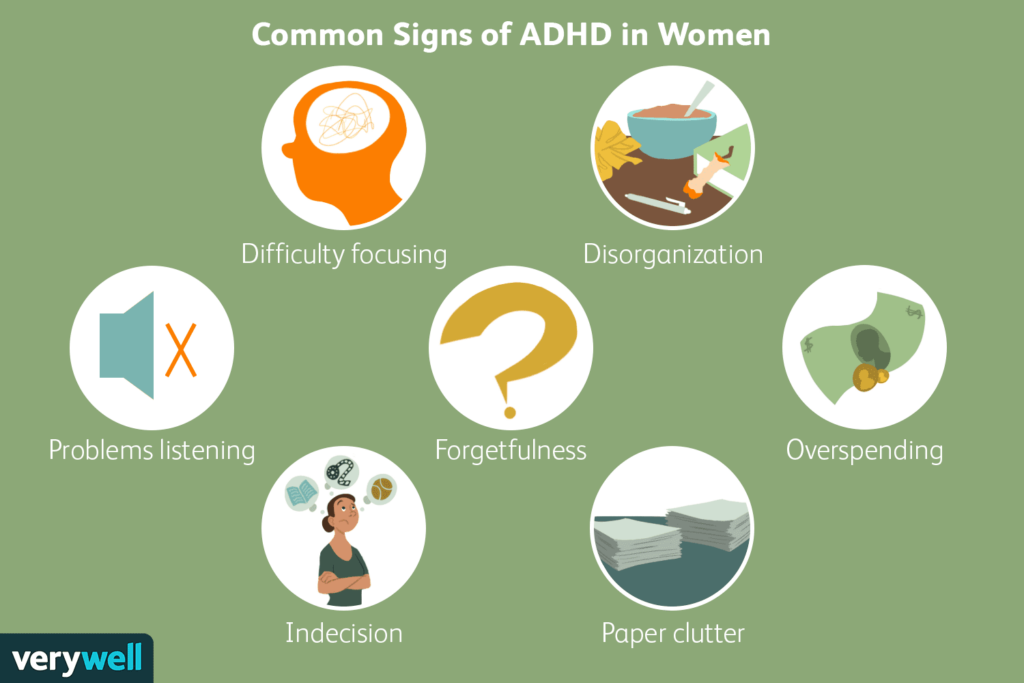
Screening Tests for Child and Teen ADHD
- NHS ADHD Test for Children: The National Health Service (NHS) offers a comprehensive ADHD assessment specifically designed for children. It involves interviews with parents or caregivers, questionnaires, and observations to evaluate ADHD symptoms and their impact on the child’s daily life.
- IDRLabs ADHD Test for Teens: The IDRLabs ADHD test provides an online self-assessment tool specifically for teenagers. It assesses ADHD symptoms based on the DSM-5 criteria, offering insights into the likelihood of having ADHD.
- Vanderbilt ADHD Test for Children and Teens: The Vanderbilt ADHD test is widely used for assessing ADHD symptoms in both children and teenagers. It incorporates input from parents, teachers, and the child, evaluating various domains of ADHD-related behaviours.
- QB ADHD Test for Children and Teens: The QB test is a computerised assessment that measures attention and impulsivity through various tasks and tests. It can aid in diagnosing ADHD in children and teenagers, providing objective data for evaluation.
It’s important to note that these screening tests serve as initial indicators and should not be considered definitive diagnostic tools.
A comprehensive evaluation by qualified healthcare professionals, including clinical interviews and consideration of the child’s medical history, is essential for an accurate ADHD diagnosis in children and teenagers.
These professionals can provide appropriate guidance and interventions to support the child’s development and well-being.
Related: How Long Does Alcohol Stay In Your Urine?
Online ADHD Tests
Online ADHD tests offer certain benefits and limitations worth considering:
Benefits of Online ADHD Tests:
- Accessibility: Online ADHD tests provide convenience, allowing individuals to assess their symptoms from the comfort of their homes at any time that suits them.
- Initial Screening: Online tests can serve as initial screening tools to gauge the likelihood of having ADHD. They can help individuals identify potential symptoms and decide whether to seek further evaluation from healthcare professionals.
- Increased Awareness: Online tests can raise awareness about ADHD by providing information about common symptoms and characteristics associated with the disorder. They can help individuals recognise patterns of behaviour that align with ADHD and prompt them to seek professional guidance.
Related: Mental Illness: Causes and Perception in Nigeria
Limitations of Online ADHD Tests:
- Self-Reporting Bias: Online tests rely on self-reporting, which can be influenced by subjective perceptions or inaccurate self-assessment. It’s essential to consider that self-perception may not always align with a professional evaluation.
- Lack of Comprehensive Assessment: Online tests provide a snapshot assessment and do not capture the full complexity of ADHD. They may not consider important contextual factors or co-occurring conditions that require consideration during a comprehensive evaluation.
- Inaccurate Results: Online tests can produce false positives or negatives, leading to incorrect interpretations. It is crucial to approach online test results cautiously and seek professional evaluation for a definitive diagnosis.
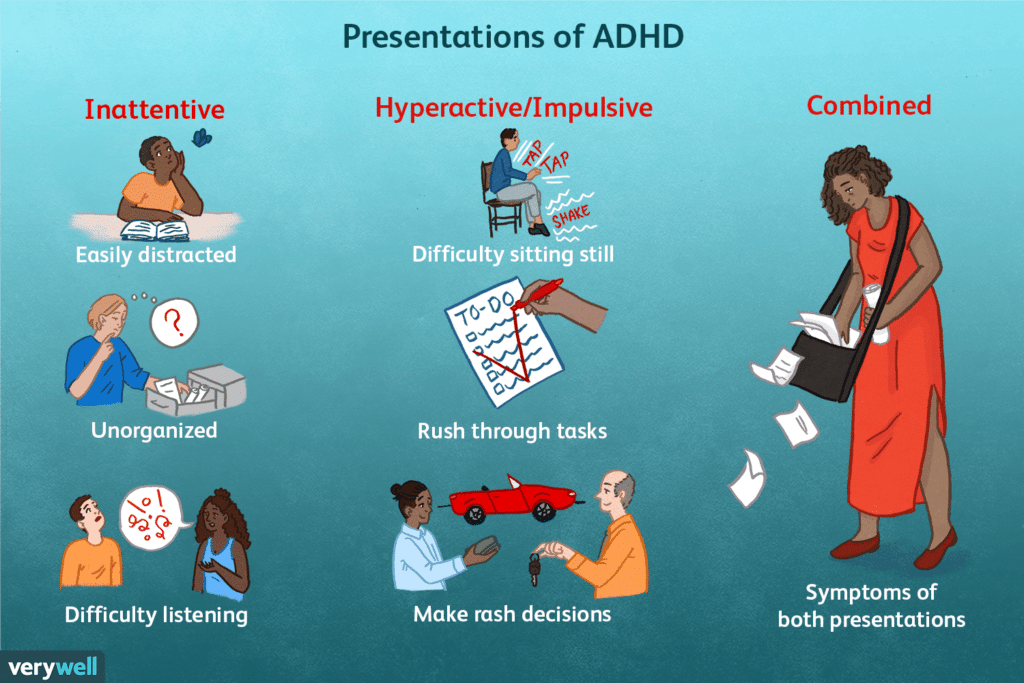
Free Online ADHD Tests:
- IDRLabs ADHD Test: The IDRLabs ADHD test is an online self-assessment tool that indicates the likelihood of having ADHD. It follows the DSM-5 criteria and offers insights into ADHD symptoms. The test is available for free.
- ADHD Spectrum Test: The ADHD Spectrum test is an online self-assessment designed to identify the presence and severity of ADHD symptoms. It assesses various domains associated with ADHD and is available free of charge.
Accuracy and Reliability of Online ADHD Tests:
While online ADHD tests can be helpful as preliminary screening tools, it’s important to understand that they do not provide a definitive diagnosis. The accuracy and reliability of online tests may vary. Factors such as test design, the quality of questions, and the population for which the test is intended can influence their accuracy.
To ensure accurate results, it is recommended to approach online tests cautiously and use them as a starting point for further evaluation. Consulting with qualified healthcare professionals, such as psychologists or psychiatrists specialising in ADHD, is essential for a comprehensive assessment and an accurate diagnosis.
Professional evaluation typically involves clinical interviews, behavioural observations, and consideration of medical history, providing a more comprehensive understanding of an individual’s symptoms and needs.
Related: 10 Amazing Fruits That Boost s3xual Prowess
Seeking Professional Help for ADHD
Role of Health Professionals in ADHD Diagnosis:
Health professionals, such as psychologists, psychiatrists, and paediatricians, play a crucial role in diagnosing ADHD. Their expertise and training enable them to assess, evaluate, and diagnose ADHD in individuals. Some of their key roles include:
- Assessment and Evaluation: Health professionals conduct comprehensive assessments to evaluate ADHD symptoms and their impact on daily life. They use various tools, interviews, and observations to gather information and diagnose accurately.
- Differential Diagnosis: Health professionals consider other possible explanations for symptoms and rule out alternative causes. They assess for co-occurring conditions that may influence ADHD symptoms and develop a comprehensive understanding of the individual’s needs.
- Treatment Planning: Health professionals collaborate with individuals and their families to develop personalised treatment plans. They consider the severity of symptoms, the individual’s goals, and available interventions to create an effective management strategy.
- Education and Support: Health professionals provide education about ADHD, its symptoms, and available treatment options. They offer guidance, resources, and support to individuals and their families, helping them navigate the challenges associated with ADHD.
Importance of a Comprehensive Evaluation:
A comprehensive evaluation is crucial for an accurate ADHD diagnosis. It involves a thorough assessment conducted by qualified health professionals and encompasses the following aspects:
- Clinical Interviews: Health professionals interview individuals and their families to gather information about symptoms, developmental history, and daily functioning. These interviews provide valuable insights into the individual’s experiences and aid in the diagnostic process.
- Behavioural Observations: Observations of the individual’s behaviour in different settings, such as home, school, or work, can provide valuable information about ADHD symptoms and their impact on daily life.
- Medical History: Health professionals review the individual’s medical history, including any pre-existing conditions, medications, or relevant family history. This helps in understanding the overall health context and ruling out other potential causes of symptoms.
- Psychological Testing: In some cases, health professionals may use standardised psychological tests to assess cognitive functioning, attention, and executive functions. These tests provide objective data to support the diagnostic process.
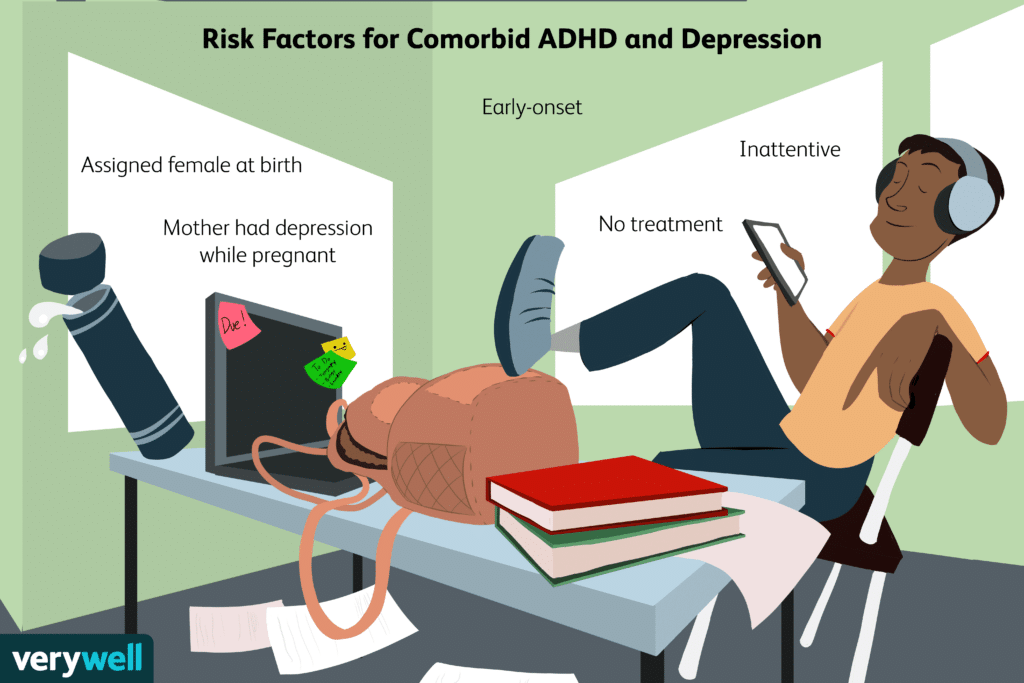
ADHD Testing Process
The ADHD testing process typically involves the following steps:
- Initial Consultation: Individuals or parents/caregivers meet with a health professional to discuss concerns, symptoms, and reasons for seeking evaluation. The health professional gathers preliminary information and determines the need for further assessment.
- Comprehensive Assessment: The health professional conducts a comprehensive assessment, which may include clinical interviews, behavioural observations, and psychological testing. They gather information from multiple sources, such as the individual, parents, teachers, and other relevant parties.
- Diagnosis: Based on the comprehensive evaluation, the health professional diagnoses ADHD if the criteria outlined in diagnostic manuals, such as the DSM-5 or ICD-10, are met. They communicate the diagnosis to the individual and their family, providing explanations and guidance.
- Treatment Planning: Following the diagnosis, the health professional collaborates with the individual and their family to develop an appropriate treatment plan. This may include a combination of interventions such as therapy, medication, behavioural strategies, and educational accommodations.
Related: Who Is a “Moomoo”? or Is It “Mumu”?
Collaboration with Mental Health Professionals
Collaborating with mental health professionals is a crucial aspect of managing ADHD effectively. Here are some key points regarding the collaboration between individuals with ADHD and mental health professionals:
- Comprehensive Assessment: Mental health professionals, such as psychologists or therapists specialising in ADHD, can contribute to the comprehensive assessment process. They bring their expertise in understanding and evaluating the psychological and emotional aspects related to ADHD. This collaboration ensures a more holistic evaluation of the individual’s needs.
- Therapy and Counseling: Mental health professionals play a vital role in providing therapy and counselling services for individuals with ADHD. They can help individuals develop coping strategies, enhance self-awareness, address emotional challenges, and improve overall mental well-being. Therapy sessions can focus on specific ADHD-related issues, such as time management, organisation, emotional regulation, and self-esteem.
- Co-occurring Mental Health Conditions: ADHD often coexists with other mental health conditions, such as anxiety, depression, or learning disorders. Mental health professionals can diagnose and treat these co-occurring conditions, providing specialised interventions tailored to the individual’s unique needs. This collaborative approach ensures that all aspects of the individual’s mental health are addressed.
- Medication Management: In cases where medication is prescribed for ADHD, mental health professionals can collaborate with medical professionals, such as psychiatrists or primary care physicians, to monitor and manage the medication. They can provide valuable insights regarding the individual’s response to medication, potential side effects, and necessary adjustments to the treatment plan.
- Support and Guidance: Mental health professionals offer ongoing support and guidance to individuals with ADHD and their families. They can assist with navigating challenges, providing psychoeducation about ADHD, and offering strategies to enhance self-management and overall well-being.
- Advocacy and Resources: Mental health professionals can advocate for individuals with ADHD, helping them access appropriate resources and support services. They can provide information about support groups, educational programs, and community resources that can assist individuals and their families manage ADHD.
Collaboration between individuals with ADHD, their families, and mental health professionals fosters a comprehensive and holistic approach to managing ADHD. Through this collaboration, individuals can receive the necessary support, therapy, and guidance to thrive in various aspects of their lives while addressing their unique mental health needs.
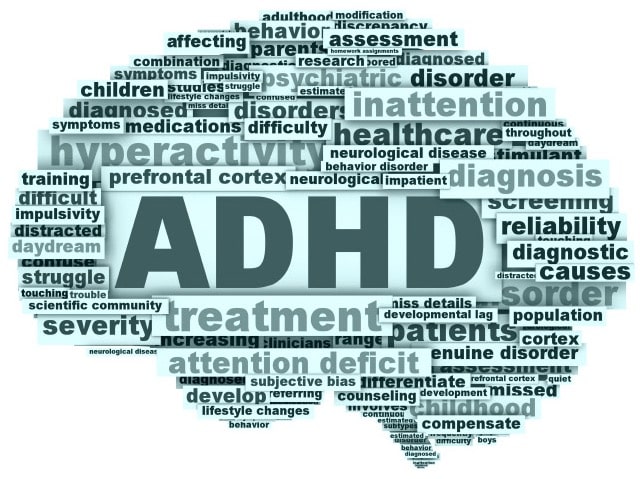
Diagnosing ADHD
Criteria for Diagnosing ADHD
The diagnosis of ADHD is based on specific criteria outlined in diagnostic manuals such as the Diagnostic and Statistical Manual of Mental Disorders (DSM-5) or the International Classification of Diseases (ICD-10). The criteria typically include the following core symptoms:
- Inattention: Difficulty sustaining attention, being easily distracted, making careless mistakes, struggling to follow instructions, and being forgetful.
- Hyperactivity: Restlessness, excessive talking, difficulty sitting still, constantly fidgeting, and feeling an inner sense of restlessness.
- Impulsivity: Acting without thinking, interrupting others, difficulty waiting for turns, and having a tendency to blurt out answers or comments.
Diagnostic Procedures and Assessments
Diagnosing ADHD involves a comprehensive evaluation that may include the following procedures and assessments:
- Clinical Interviews: Health professionals interview individuals and their family members to gather information about their history, symptoms, and functional impairments. These interviews help establish a comprehensive understanding of the individual’s ADHD-related challenges.
- Rating Scales and Questionnaires: Health professionals may use standardised rating scales and questionnaires completed by the individual, parents, teachers, or other caregivers. These assessments provide additional information about the presence and severity of ADHD symptoms across different settings.
- Behavioural Observations: Observations of the individual’s behaviour in various settings, such as home, school, or work, can offer valuable insights into their ADHD symptoms and how they impact their daily functioning.
- Medical and Developmental History: Reviewing the individual’s medical and developmental history is crucial in ruling out other potential causes of the symptoms and understanding the context in which ADHD is present.
Importance of Considering the Individual’s History and Symptoms
When diagnosing ADHD, it is vital to consider the individual’s history and symptoms comprehensively. This includes:
- Developmental History: Understanding the individual’s developmental milestones, including early childhood behaviours and academic performance, can help identify patterns of ADHD symptoms that have persisted over time.
- Contextual Factors: Considering the individual’s environment, such as family dynamics, school or work environment, and social interactions, provides insights into the impact of ADHD symptoms in different settings.
- Co-occurring Conditions: Assessing for co-occurring conditions, such as learning disorders, anxiety, or depression, is crucial, as these conditions can influence ADHD symptoms and treatment approaches.
- Functional Impairments: Evaluating the functional impairments caused by ADHD symptoms is essential in understanding the individual’s difficulties in various domains, such as academic or occupational performance, relationships, and daily functioning.
Evaluation by a Health Professional
A proper evaluation for ADHD should be conducted by qualified health professionals, such as psychologists, psychiatrists, or paediatricians with expertise in ADHD. They possess the necessary knowledge and skills to assess and diagnose ADHD accurately.
The evaluation typically involves a combination of clinical interviews, behavioural assessments, rating scales, and a review of the individual’s history. Health professionals utilise their expertise to interpret the collected information and make a diagnosis based on the established criteria.
An accurate diagnosis by a health professional is crucial for individuals with ADHD, as it guides appropriate treatment planning, interventions, and support. It ensures that the individual receives the necessary help and resources to manage their symptoms effectively and improve their overall quality of life.
Resources and Support for ADHD
Support Groups and Organizations for ADHD:
There are numerous support groups and organisations dedicated to providing assistance, information, and community for individuals with ADHD and their families. These groups offer a valuable platform for sharing experiences, gaining support, and accessing resources. Some notable organisations include:
- CHADD (Children and Adults with Attention-Deficit/Hyperactivity Disorder): CHADD is a leading nonprofit organisation that provides education, advocacy, and support for individuals with ADHD. They offer local support groups, educational resources, and an online community.
- ADDA (Attention Deficit Disorder Association): ADDA is an organisation that supports adults with ADHD. They provide resources, online forums, webinars, and an annual conference focused on adult ADHD.
- Understood: Understood is a comprehensive online resource that offers support, information, and practical strategies for parents of children with ADHD. It provides articles, expert advice, community forums, and personalised tools.
- National Resource Center on ADHD: This resource centre, funded by the Centers for Disease Control and Prevention (CDC), offers evidence-based information, educational materials, and resources for individuals with ADHD, parents, educators, and healthcare professionals.
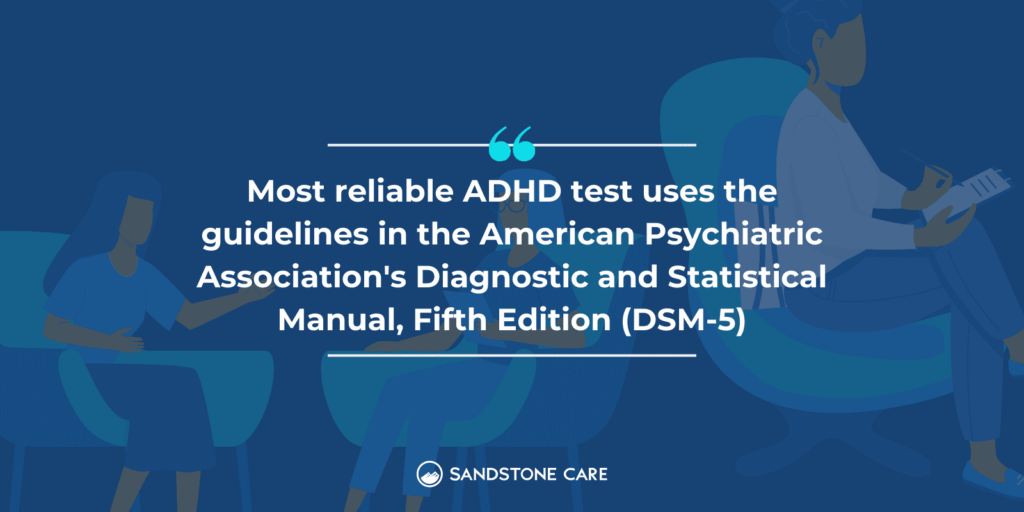
Available Treatments and Therapies for ADHD:
- Medication: Stimulant and non-stimulant medications are commonly prescribed to manage ADHD symptoms. These medications help improve attention, reduce hyperactivity, and enhance impulse control. The specific medication and dosage depend on individual needs and are determined in collaboration with healthcare professionals.
- Behavioural Therapy: Behavioral therapy, such as Cognitive-Behavioral Therapy (CBT), can help individuals with ADHD develop coping strategies, improve organisation and time management skills, and address emotional regulation difficulties. It focuses on modifying behaviour and promoting positive changes.
- Parent Training and Education: Parents of children with ADHD can benefit from training programs that provide strategies for managing their child’s behaviour, creating structure and routines, and fostering a supportive home environment. These programs offer practical techniques and guidance to enhance parenting skills.
- Educational Interventions: Educational accommodations and interventions can support individuals with ADHD in academic settings. These may include classroom modifications, individualised education plans (IEPs), or Section 504 plans that provide specific accommodations and support in school.
Strategies for Managing ADHD Symptoms:
In addition to professional treatments, individuals with ADHD can adopt various strategies to manage their symptoms:
- Establish Routines: Creating structured daily routines and schedules can help individuals with ADHD stay organised, manage time effectively, and reduce the feeling of being overwhelmed.
- Break Tasks into Smaller Steps: Breaking tasks into smaller, manageable steps can make them more approachable and less daunting. It can improve focus and increase productivity.
- Use Visual Cues and Reminders: Visual cues, such as calendars, to-do lists, and reminders, can serve as helpful prompts to stay on track and remember important tasks or deadlines.
- Practice Mindfulness and Relaxation Techniques: Mindfulness exercises and relaxation techniques, such as deep breathing or meditation, can help reduce stress, increase self-awareness, and improve attention and impulse control.
Importance of Ongoing Care and Monitoring of ADHD
ADHD is a chronic condition that requires ongoing care and monitoring. Regular check-ins with healthcare professionals, such as psychiatrists, psychologists, or paediatricians, are crucial for:
- Medication Management: Regular follow-ups with healthcare professionals allow for monitoring of medication effectiveness, potential side effects, and adjustments to the treatment plan as needed.
- Treatment Evaluation: Ongoing assessment of the individual’s progress and treatment efficacy helps determine if any modifications or additional interventions are necessary.
- Support and Guidance: Continual support from healthcare professionals ensures that individuals and their families have access to the necessary resources, information, and guidance
Listen: ADHD in NIGERIA- A Menace
[buzzsprout episode=’12781938′ player=’true’]
Listen: My ADHD story in Nigeria
[buzzsprout episode=’12798243′ player=’true’]
Conclusion
ADHD tests serve as crucial tools in diagnosing and understanding the complexities of Attention Deficit Hyperactivity Disorder. These tests provide a pathway for adults and children to journey towards self-awareness, support, and effective management of their ADHD symptoms.
By undertaking an ADHD test, individuals gain valuable insights into their cognitive processes, attention spans, and impulse control, empowering them to take proactive steps towards their well-being. Whether through online assessments or screenings conducted by healthcare professionals, these tests lay the foundation for tailored interventions and treatment plans.
Moreover, ADHD tests facilitate early detection and intervention, enabling individuals to address their challenges head-on and access the necessary resources and support. They assist in identifying ADHD but also aid in ruling out other potential factors that may mimic its symptoms.
However, it’s important to recognise that an ADHD test is not the sole determinant of one’s identity or capabilities. It serves as a tool, a guiding compass in understanding one’s neurological makeup. The true essence lies in acknowledging and embracing the unique strengths and abilities that individuals with ADHD possess.
So, whether you embark on an online ADHD test, consult with healthcare professionals, or collaborate with mental health experts, remember that the journey to understanding and managing ADHD is a multifaceted one. Seek knowledge, find support, and embrace the remarkable individuals that you are beyond the boundaries of an ADHD test.
Together, let us work towards a society that celebrates neurodiversity and empowers individuals with ADHD to unlock their full potential, one ADHD test at a time.
FAQs
Can ADHD test?
ADHD cannot test itself. However, there are specific tests and assessments available to diagnose ADHD.
Does ADHD affect test taking?
ADHD can affect test taking due to difficulties with attention, impulsivity, and executive functions, which can impact focus, organisation, and time management during tests.
Can ADHD cause test anxiety?
Individuals with ADHD may experience test anxiety due to the pressure to perform, difficulties with focus and time management, and fear of making mistakes.
Does ADHD affect test scores?
ADHD can affect test scores due to challenges with attention, organisation, and impulsivity, which may impact performance and overall test results.
Can you fake an ADHD test?
It is possible to manipulate test results, but it is not advisable to fake an ADHD test. Accurate diagnosis and treatment require honesty and proper evaluation.
Can adults test for ADHD?
Adults can undergo ADHD testing through specialised assessments conducted by healthcare professionals or psychologists.
Can you get an ADHD test on the NHS?
In countries with a public healthcare system like the UK, such as the NHS, it is possible to receive ADHD testing through the appropriate channels and referrals.
Can I take an ADHD test online?
There are online ADHD tests available, but they should not be considered a definitive diagnosis. They can provide initial insights, but a comprehensive evaluation by a healthcare professional is recommended for accurate diagnosis.
Can ADHD affect an IQ test?
ADHD can influence performance on an IQ test due to challenges with attention, focus, and impulsivity, potentially affecting the results.
Do I have ADHD tests?
There are self-assessment tests and questionnaires available to help individuals evaluate their ADHD symptoms, but a formal diagnosis should be obtained through a professional evaluation.



